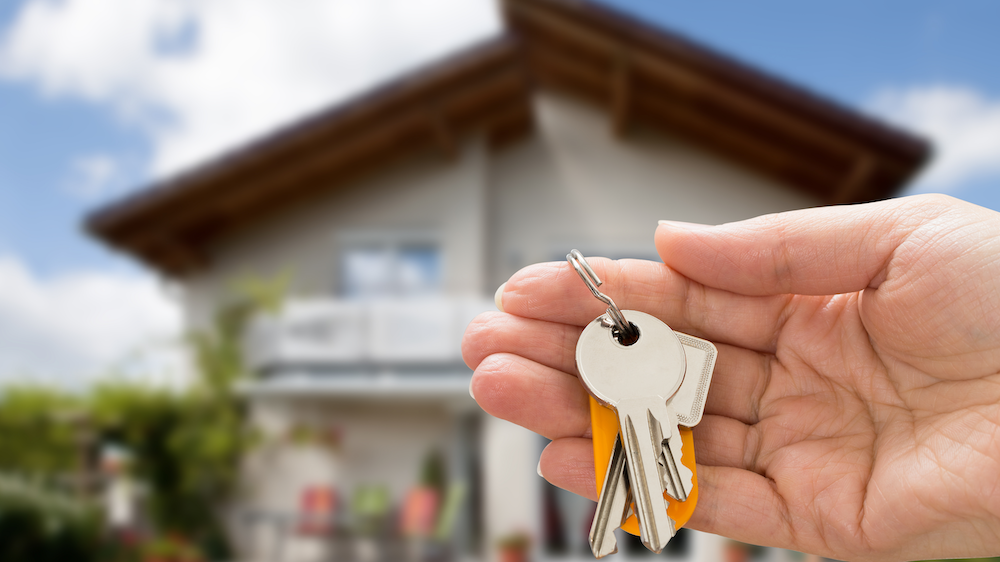
Mortgage Rates North Carolina: Which Lender Offers The Best Rates?

(insert personalized rate tool here)
There are plenty of reasons to settle down in North Carolina. It's famous for having multiple outdoor attractions, a thriving economy, and state-of-the-art health care. Plus, the cost of living is below the national average.
But before you can buy a property in the Tar Heel State, you need to take out a home loan. If you're unsure of how that works, don't worry! We'll walk you through the home buying and mortgage process. We'll also give you exclusive access to mortgage and refinance rates in North Carolina.

Mortgage Options In North Carolina
There are several home loan options available. The loan type you choose will have an effect on your mortgage's minimum down payment (DP), borrower qualifications, and maximum loan amount. Generally, you can pick from these categories:
Conventional Loans
Conventional loans are mortgages that are not insured by any government entity. Because of that, they come with stricter credit requirements. Most lenders also require that you put down 20% of the home's purchase price. If that's not possible, you will need to pay for private mortgage insurance (PMI).
Still, conventional loans are a great option because they can be used to purchase most types of properties, even if you are not using them as your primary residence. Conventional mortgages also close faster because they require fewer documentary requirements.
Under conventional loans, you can pick from the following:
- Conforming loans: Conforming loans adhere to limits set by the Federal Housing Finance Agency. These loans can be resold to federal entities like Fannie Mae and Freddie Mac in the secondary mortgage market. In North Carolina, the limit for 2021 is $548,250, on par with the national average.
- Nonconforming loans: Nonconforming loans do not adhere to guidelines set by the government. Jumbo loans, or mortgages with loan amounts that exceed conforming loan limits, fall under this category. Nonconforming loans come with higher interest rates because they carry greater risks for the lender.
Government-Backed Loans
Government-backed loans are mortgages that are backed by the United States federal government. While the government does not directly issue loans to borrowers, you can get these loans through approved lenders. You can choose from the following:
- Federal Housing Administration (FHA) Loan: FHA loans require a lower minimum down payment and credit score compared to most conventional loans. In order to secure this type of loan, you need to pay private mortgage insurance (PMI) to the FHA.
- United States Department of Agriculture (USDA) Loan: USDA loans are designed to boost homeownership in eligible rural and suburban areas. They come with lower interest rates and require zero down payment.
- Department of Veterans Affairs (VA) Loan: VA loans are benefits given to eligible members of the military, veterans, and their surviving spouses. Like USDA loans, they require zero DP.

Loan Terms
Loan terms refer to the contractual agreements you've made with the lender regarding your mortgage, including the term length and interest rate type. With most lenders, you have two options:
Fixed-Rate Mortgage
If you choose a fixed-rate loan term, your mortgage rate will remain consistent throughout the life of the loan. Typically, you can pick from a 10, 15, 20, or 30-year fixed mortgage.
Since the actual rate remains consistent, your monthly payment amount will not change as well. However, other fees, like your property taxes, may increase periodically.
Adjustable-Rate Mortgage
If you choose an adjustable-rate loan term, your mortgage will only be consistent during a set number of years at the beginning of the loan. After that period ends, the mortgage rate will be adjusted annually based on a market index that your lender chooses.
Mortgage Refinancing
Mortgage refinancing means paying off your current mortgage balance and replacing it with a new loan. Most people do this to take advantage of lower interest rates, renegotiate their loan terms, or cash in on their home equity.
Check the data on this page for more information on the latest North Carolina mortgage and refinance rates. This will give you a clear picture of which lender offers the best deal for your second mortgage.
Today's Mortgage Rates in North Carolina
There are several mortgage lending institutions in North Carolina. To see which lender can help you save money on your home purchase, it's best to compare mortgage rates. Check the data below for easy comparison.
(insert mortgage table here)
If you want personalized North Carolina mortgage rates, use the mortgage calculator at the top of this page. Simply enter your desired loan amount and your preferred loan terms, and the tool will automatically generate personalized interest rates for you.

Homebuyer Assistance Programs In North Carolina
Purchasing a home shouldn't be an impossible dream. With the help of the North Carolina Housing Finance Agency, you can get low-cost mortgages and down payment assistance. Here are some of the agency's loan programs:
NC Home Advantage Mortgage
Under this program, eligible homebuyers can get a mortgage at a highly competitive interest rate. They can also get DP assistance of up to 5% of the loan amount.
This program also lets homebuyers secure an FHA, USDA, or VA loan with up to 100% financing. This means you can get a loan without putting money down on your home.
NC 1st Home Advantage Down Payment
Through this program, eligible first-time homebuyers or military veterans can get up to $8,000 DP assistance. This is given as a 0% deferred second mortgage, which means that you don't have to pay it back as long as you stay in the home for a specific number of years. In this case, the DP is forgiven at a rate of 20% per year at the end of years 11-15. It is completely forgiven by year 15.
NC Home Advantage Tax Credit
This mortgage credit certificate gives qualified buyers the opportunity to save up to $2,000 a year on their federal income taxes. You can apply for this certificate if you are taking out a 30-year fixed-rate mortgage.
Steps To Buying Real Estate In North Carolina
Buying a home doesn't have to be a stressful experience. Follow this step-by-step guide to learn more about the homebuying process in North Carolina:
Step 1: Evaluate Your Finances
Before you take out a mortgage, you should make sure that you're financially prepared. Here are some of the factors you should consider:
- Debt-to-income ratio: Most mortgage lenders want you to use a maximum of 43% of your gross monthly income to pay off your debts, including your future mortgage payments.
- Closing costs: These include the fees you pay for title insurance, attorney fees, and mortgage originations. These fees can reach up to 3-5% of the loan amount. To help you save money, check if there are loan programs that can help you cover your closing costs.
- Down payment: If you're getting a conventional loan, most lenders require that you put down 20% of the purchase price. You can look for first-time homebuyer programs that can help you save money on your down payment.
- Credit score: You will usually need a credit score of 620 or higher to secure a conventional loan.
Step 2: Get Preapproved For A Mortgage
The next step is getting a preapproval letter from a lender. Getting preapproved for a mortgage shows sellers that you are serious about buying a property and you can afford your loan's monthly payment.
You can check the data on this page to see average mortgage rates from multiple lenders. That way, you can see which one offers you the best deal on your home loan.
Once you've chosen a lender, visit the lender's site and send your personal and financial information. They'll respond with a preapproval letter if you meet their qualifications.
Step 3: Find A Property In North Carolina
Now comes the fun part: house hunting! It's best to look for a real estate agent who's licensed to practice in North Carolina. They can show you properties within your budget while making sure to consider your must-haves. They can also educate you on which neighborhoods have homes that will likely increase property value in the future.
Once you've found an ideal home, you can ask your agent to send an offer to the seller. Your agent should also help you negotiate the terms of the sale.
Step 4: Secure Financing
If a seller accepts your offer, then you're halfway done! All you have to do now is to secure financing. You can contact the lender that sent your preapproval letter or you can choose a different lender altogether. Check the data on this page again for the most updated mortgage rates.
After picking a lender, send them your financial information together with the details of your home purchase. Mortgage applications usually take two to four weeks to close.
Step 5: Closing And Contract Signing
The last step is closing and contract signing. At this stage, you'll need to pay all the fees associated with your mortgage, including origination fees and title insurance fees.
Once you've paid your dues and signed your contract, you'll get the keys to your new home. Time to move in!

How To Get Better Mortgage Rates In North Carolina
If you want to save money on buying a house, you should do your best to get the lowest mortgage rate from your lender. Here are some tips to consider:
Choose Shorter Loan Terms
The easiest way to get a lower interest rate is by choosing shorter loan terms. Instead of getting a 30-year fixed mortgage, for example, you can opt for a 20-year fixed mortgage.
Boost Your Credit Score
Lenders reward borrowers with good credit scores by offering them lower mortgage rates. Here are some ways to increase your credit:
- Pay off personal loans, student loans, and credit cards.
- Pay all your bills on time.
- Avoid closing credit cards with a balance.
- Check your credit report for inaccuracies/outdated information.
Buy Discount Points
Discount points are fees you pay directly to your lender in exchange for a lower interest rate. That way, you pay more upfront, but save money on future interest payments. Your lender should be able to show you the potential savings figures for each point that you buy.

Final Thoughts
Taking out a mortgage in North Carolina doesn't have to be a nerve-racking experience. As long as you follow the steps on this guide, you'll know exactly what you need to do to finance your new home.
If you need more information about North Carolina mortgage rates, get in touch with Wesley! We'll help you compare mortgage rates and top lenders to find the most affordable loan.